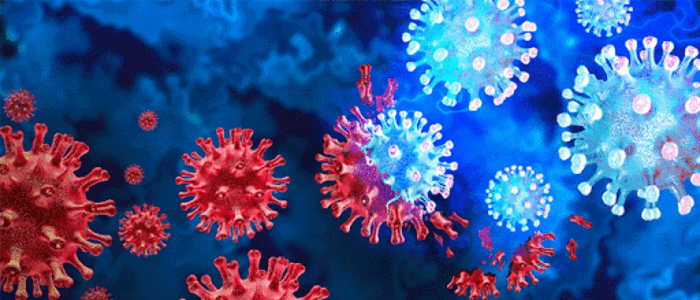
Several coronavirus variants have emerged throughout the COVID-19 pandemic, as the virus, SARS-CoV-2, continues to mutate and evolve. In November 2021, a new variant of the SARS-CoV-2 emerged, named omicron by the World Health Organization (WHO). The omicron is currently listed as a variation of concern by WHO.
WHAT WE KNOW ABOUT OMICRON
How easily does Omicron spread?
The Omicron variant is more likely to spread fast than the original SARS-CoV-2 virus. Available data shows that anyone with Omicron infection can spread the virus to others, even if they are vaccinated or don’t have symptoms.
What are the symptoms of Omicron?
In some circumstances, the symptoms of the Omicron variant differ from those of the delta variant. According to the WHO, the primary symptoms remain to be.
Headache
Nausea
Dizziness
Fever
Cough
Do prior SARS-CoV-2 infections have any effect on Omicron?
Preliminary research suggests there may be a higher risk of re-infection with the Omicron variant (i.e., those who have previously had COVID may be more easily reinfected with Omicron), as compared to other Covid variants, but the information is limited.
Will the COVID-19 vaccines Work Against Omicron in cancer patients?
In cancer patients, current Covid-19 vaccines are expected to protect against severe illness, hospitalizations, and deaths due to infection with the Omicron variant. However, breakthrough infections are more likely to occur in patients who have been fully vaccinated. Vaccines against other variations of Covid-19 have proven helpful in reducing severe disease, hospitalizations, and death
Is there any specific Covid vaccine for cancer patients?
No research has been done that shows the comparison between all the vaccines of COVID-19. As a result, it’s unclear whether any of the vaccines are safer or more effective than others. There is no data that can prove which COVID-19 vaccines are more or less effective against new variants of COVID-19 that have appeared in recent months.
No specific vaccine is recommended by major medical organisations for cancer patients or patients with other health concerns. During these unprecedented times getting the COVID-19 vaccination, whichever one it is, is most important, rather than waiting for a specific vaccine.
How to get tested?
The widely used Polymerase Chain Reaction (PCR) tests continue to detect infection, including infection with the Omicron variant, as we have seen with other variants as well.
When to get tested?
It is very important that you get tested right away when you think you have been exposed to the virus by possible means and if you experience symptoms such as breathing difficulty, fever, cough, dizziness, etc.
Does omicron cause more severe COVID-19 illness in cancer patients?
It is too soon to know the effects of Omicron on disease severity. Currently, it is unknown if infection with the Omicron variant is linked with more severe disease.
Can Anti-cancer treatments increase the chances of getting infected?
Chemotherapy and radiotherapy can affect the immune system thus making you immune-compromised which can increase the chances of getting infected and the disease is more likely to progress at a greater speed. People who have been diagnosed with cancer must lookout for any symptoms of severe headache, fever. chills, runny nose, cold, cough, palpitations, body ache, fatigue and report to your health care professional as early as possible.
What to do if you are tested positive?
It is very important that you isolate yourself, inform your health care provider and seek medical help and advice immediately.
What are the available treatment options?
Corticosteroids and IL6 Receptor Blockers are the two most effective treatment options for managing patients with severe COVID-19. Other treatments methods are under evaluation to see if they are still as effective as they were for the older variants of Covid-19.
How to stay safe?
Even though Omicron spread fast & easily, there are several methods that are proven to be effective at keeping us safe.
If you or anyone in your family is not vaccinated yet, then get vaccinated as soon as possible. COVID-19 vaccines have been found to be both safe and effective at protecting individuals with cancer. You can visit the covid vaccine centre in Bangalore located in many places or book an appointment with Cancer Therapy India.
Wear a mask even if you are vaccinated, it is recommended to wear a double mask if you are in a crowd. Avoid public gatherings and crowded places and ensure appropriate distancing and ventilation if indoors. Also, wash your hands or use a hand sanitiser often. All of these will add extra layers of protection.
Be prepared and vigilant: Keep a pulse oximeter, thermometer, hand sanitisers and masks in adequate quantity at home.
We all play a very important role in dealing with the pandemic safely. Any type of negligence from our side can be very risky for our health and for others.